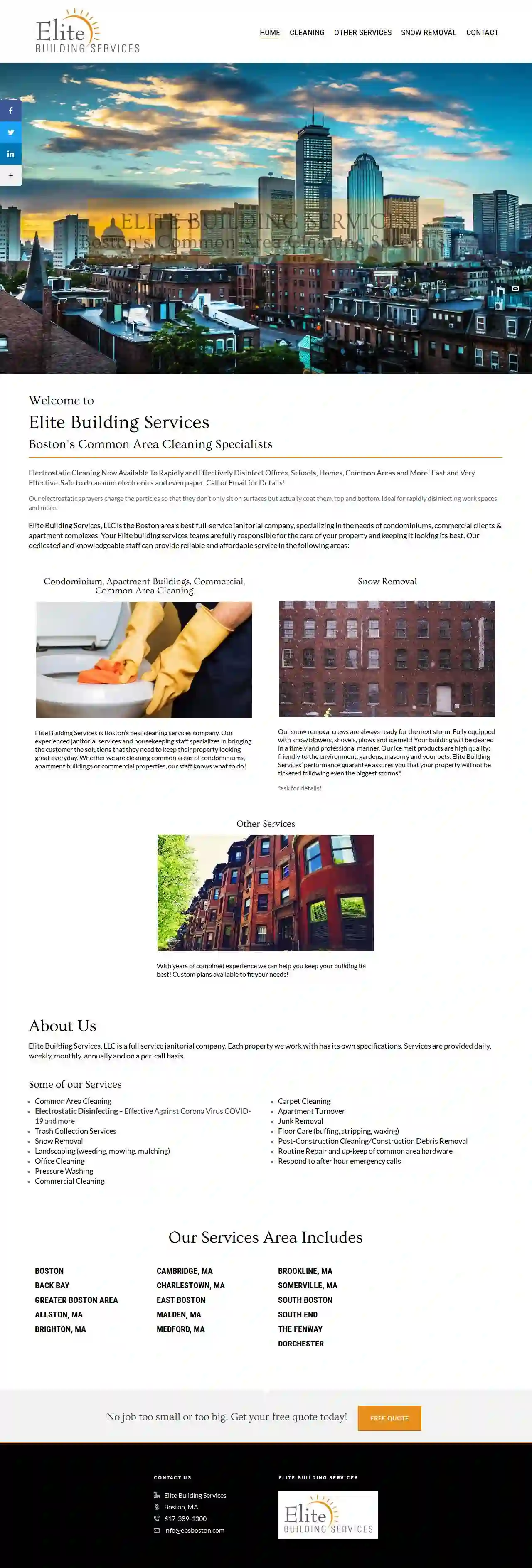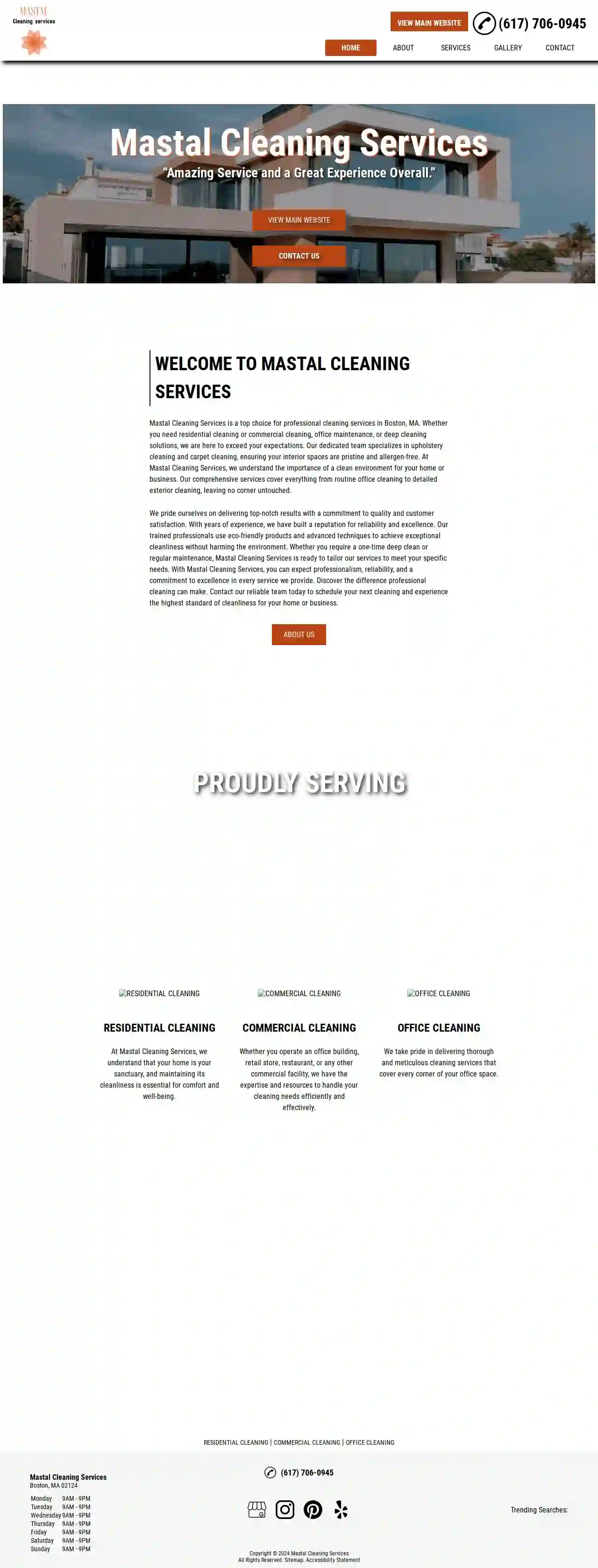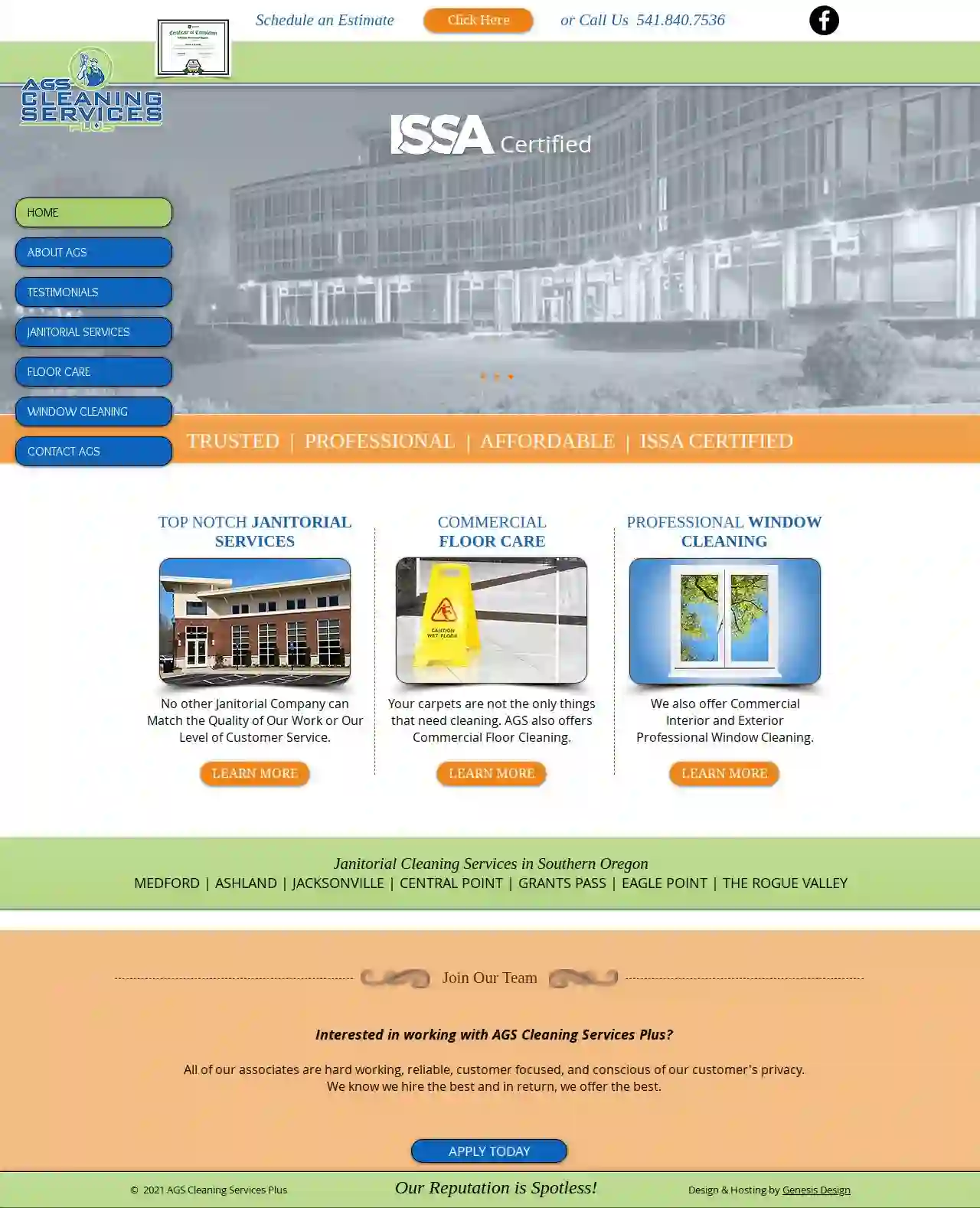Cleaning Services Waltham
Find top Cleaning Services in Waltham
Receive 3 FREE Cleaning Companies quotes for your project today! Compare profiles, reviews, accreditations, portfolio, etc... and choose the best service.
Service Needed
City or Town

Clean Hood Services LLC
554 reviewsBoston, US- Services
- Why Us?
- Gallery
Get Quote
Matos Cleaning Service Inc.
55 reviewsBoston, US- Services
- Why Us?
- Gallery
Get Quote
Elite Building Services, LLC
57 reviewsBoston, US- Services
- Why Us?
Get Quote
Yvonne's Commercial Cleaning Services
4.85 reviewsBoston, US- Services
- Why Us?
Get Quote
AGS Cleaning Services Plus
4.661 reviewsMedford, US- Services
- Why Us?
Get Quote
J & J House Cleaning
3.920 reviewsMedford, US- Services
- Why Us?
Get Quote
RDL Cleaning | Commercial Cleaning Services in Boston, MA
52 reviewsBoston, US- Services
- Why Us?
Get Quote
Tidy Here Cleaning Service Boston
576 reviewsBoston, US- Services
- Why Us?
Get Quote
Cleaning Services Group, Inc.
4.212 reviewsBoston, US- Services
- Why Us?
Get Quote- Fi
Five Stars Quality Cleaner - Dry Cleaning & Cleaning Services in Boston, MA
4.538 reviewsBoston, US- Services
- Why Us?
Get Quote
Over 60,241+ Cleaning Services in our network
Our janitorial companies operate in Waltham and beyond!
CleaningMatch has curated and vetted Top Cleaning Contractors in Waltham. Find a top & reliable contractor today.
Frequently Asked Questions About Cleaning Services
Find answers to common questions about cleaning services and hiring cleaning companies in the USA.
- Ventilation: Improve ventilation by opening windows, turning on the exhaust fan, and using a dehumidifier to reduce moisture levels.
- Bleach Solution: Mix one cup of bleach with one gallon of water. Wear gloves and eye protection when handling bleach. Apply the solution to the affected area, let it sit for 10-15 minutes, then scrub with a brush and rinse thoroughly.
- Vinegar Solution: For a milder alternative, mix equal parts water and vinegar. Apply to the moldy area, let it sit for an hour, then scrub and rinse.
- Baking Soda Paste: Make a paste of baking soda and water, apply to the moldy area, let it dry, then scrub and rinse. Baking soda helps remove stains and deodorize.
- Commercial Mold and Mildew Remover: Use a commercial mold and mildew remover according to the product instructions.
- Ventilation: Open windows and turn on the exhaust fan to improve air circulation.
- Declutter: Remove any items from countertops, the shower, and the floor to allow easy access.
- Pre-treat: Spray shower walls, tub, and toilet bowl with bathroom cleaner and let it sit for a few minutes to break down grime.
- Toilet: Scrub the toilet bowl with a toilet brush, paying attention to the rim and under the seat. Wipe down the exterior of the toilet with a disinfectant wipe.
- Shower/Tub: Scrub the shower walls and tub with a sponge or scrub brush. Rinse thoroughly.
- Sink: Clean the sink with a sponge or cloth and bathroom cleaner. Pay attention to the faucet and drain.
- Mirrors and Glass: Wipe down mirrors and glass surfaces with a glass cleaner and a microfiber cloth for a streak-free finish.
- Floors: Sweep or vacuum the floor, then mop with a floor cleaner designed for your bathroom floor type.
- Finishing Touches: Empty the trash can, replace towels, and put away any toiletries.
- Online Directories: Use online directories like CleaningMatch to search for cleaning services in your area. Filter your search results by the specific cleaning type you need.
- Search Engines: Use search engines like Google to find cleaning services specializing in your desired cleaning type. For example, search for 'post-construction cleaning services near me' or 'eco-friendly cleaning services in [city name].'
- Ask for Referrals: Ask friends, family, neighbors, or colleagues if they know of any reputable cleaning services specializing in your desired cleaning type.
- Check Company Websites: Visit the websites of cleaning services in your area to see if they list the specific cleaning type you need among their services.
- Contact Companies Directly: Contact cleaning companies directly to inquire about their specialization in your desired cleaning type.
- Weekly: Suitable for busy households with children or pets, ensuring a consistently clean and healthy environment.
- Bi-weekly: A good option for smaller households or those who maintain a relatively clean home.
- Monthly: May be sufficient for individuals or couples who live a minimalist lifestyle.
- Quarterly or Annually: Can be suitable for deep cleaning or seasonal cleaning tasks.
How do I remove mold and mildew from my bathroom?
Mold and mildew can grow in damp areas like bathrooms, posing health risks and aesthetic concerns. Here's how to remove them:
Always test any cleaning solution on a small, inconspicuous area first. After cleaning, take steps to prevent future mold growth by addressing moisture issues, such as fixing leaks and improving ventilation.
Always test any cleaning solution on a small, inconspicuous area first. After cleaning, take steps to prevent future mold growth by addressing moisture issues, such as fixing leaks and improving ventilation.
What is the best way to clean a bathroom?
Cleaning a bathroom effectively involves targeting key areas and using the right cleaning products. Here's a step-by-step guide:
By following these steps, you can maintain a clean and hygienic bathroom.
By following these steps, you can maintain a clean and hygienic bathroom.
How do I find a cleaning service that specializes in [specific type of cleaning]?
If you need a cleaning service specializing in a particular type of cleaning, such as post-construction cleaning, window cleaning, or green cleaning, follow these steps:
By using these methods, you can find a qualified cleaning service that meets your specific cleaning needs.
By using these methods, you can find a qualified cleaning service that meets your specific cleaning needs.
How often should I have my house cleaned?
The frequency of house cleaning depends on factors like your lifestyle, the size of your house, and your personal preferences. Here's a general guideline:
You can adjust the frequency based on your needs and budget. Some people opt for weekly cleaning for high-traffic areas like kitchens and bathrooms and bi-weekly cleaning for the rest of the house.
You can adjust the frequency based on your needs and budget. Some people opt for weekly cleaning for high-traffic areas like kitchens and bathrooms and bi-weekly cleaning for the rest of the house.
How do I remove mold and mildew from my bathroom?
Mold and mildew can grow in damp areas like bathrooms, posing health risks and aesthetic concerns. Here's how to remove them:
Always test any cleaning solution on a small, inconspicuous area first. After cleaning, take steps to prevent future mold growth by addressing moisture issues, such as fixing leaks and improving ventilation.
- Ventilation: Improve ventilation by opening windows, turning on the exhaust fan, and using a dehumidifier to reduce moisture levels.
- Bleach Solution: Mix one cup of bleach with one gallon of water. Wear gloves and eye protection when handling bleach. Apply the solution to the affected area, let it sit for 10-15 minutes, then scrub with a brush and rinse thoroughly.
- Vinegar Solution: For a milder alternative, mix equal parts water and vinegar. Apply to the moldy area, let it sit for an hour, then scrub and rinse.
- Baking Soda Paste: Make a paste of baking soda and water, apply to the moldy area, let it dry, then scrub and rinse. Baking soda helps remove stains and deodorize.
- Commercial Mold and Mildew Remover: Use a commercial mold and mildew remover according to the product instructions.
Always test any cleaning solution on a small, inconspicuous area first. After cleaning, take steps to prevent future mold growth by addressing moisture issues, such as fixing leaks and improving ventilation.
What is the best way to clean a bathroom?
Cleaning a bathroom effectively involves targeting key areas and using the right cleaning products. Here's a step-by-step guide:
By following these steps, you can maintain a clean and hygienic bathroom.
- Ventilation: Open windows and turn on the exhaust fan to improve air circulation.
- Declutter: Remove any items from countertops, the shower, and the floor to allow easy access.
- Pre-treat: Spray shower walls, tub, and toilet bowl with bathroom cleaner and let it sit for a few minutes to break down grime.
- Toilet: Scrub the toilet bowl with a toilet brush, paying attention to the rim and under the seat. Wipe down the exterior of the toilet with a disinfectant wipe.
- Shower/Tub: Scrub the shower walls and tub with a sponge or scrub brush. Rinse thoroughly.
- Sink: Clean the sink with a sponge or cloth and bathroom cleaner. Pay attention to the faucet and drain.
- Mirrors and Glass: Wipe down mirrors and glass surfaces with a glass cleaner and a microfiber cloth for a streak-free finish.
- Floors: Sweep or vacuum the floor, then mop with a floor cleaner designed for your bathroom floor type.
- Finishing Touches: Empty the trash can, replace towels, and put away any toiletries.
By following these steps, you can maintain a clean and hygienic bathroom.
How do I find a cleaning service that specializes in [specific type of cleaning]?
If you need a cleaning service specializing in a particular type of cleaning, such as post-construction cleaning, window cleaning, or green cleaning, follow these steps:
By using these methods, you can find a qualified cleaning service that meets your specific cleaning needs.
- Online Directories: Use online directories like CleaningMatch to search for cleaning services in your area. Filter your search results by the specific cleaning type you need.
- Search Engines: Use search engines like Google to find cleaning services specializing in your desired cleaning type. For example, search for 'post-construction cleaning services near me' or 'eco-friendly cleaning services in [city name].'
- Ask for Referrals: Ask friends, family, neighbors, or colleagues if they know of any reputable cleaning services specializing in your desired cleaning type.
- Check Company Websites: Visit the websites of cleaning services in your area to see if they list the specific cleaning type you need among their services.
- Contact Companies Directly: Contact cleaning companies directly to inquire about their specialization in your desired cleaning type.
By using these methods, you can find a qualified cleaning service that meets your specific cleaning needs.
How often should I have my house cleaned?
The frequency of house cleaning depends on factors like your lifestyle, the size of your house, and your personal preferences. Here's a general guideline:
You can adjust the frequency based on your needs and budget. Some people opt for weekly cleaning for high-traffic areas like kitchens and bathrooms and bi-weekly cleaning for the rest of the house.
- Weekly: Suitable for busy households with children or pets, ensuring a consistently clean and healthy environment.
- Bi-weekly: A good option for smaller households or those who maintain a relatively clean home.
- Monthly: May be sufficient for individuals or couples who live a minimalist lifestyle.
- Quarterly or Annually: Can be suitable for deep cleaning or seasonal cleaning tasks.
You can adjust the frequency based on your needs and budget. Some people opt for weekly cleaning for high-traffic areas like kitchens and bathrooms and bi-weekly cleaning for the rest of the house.